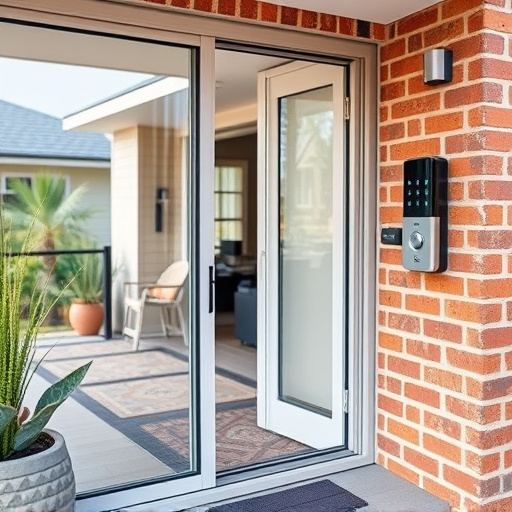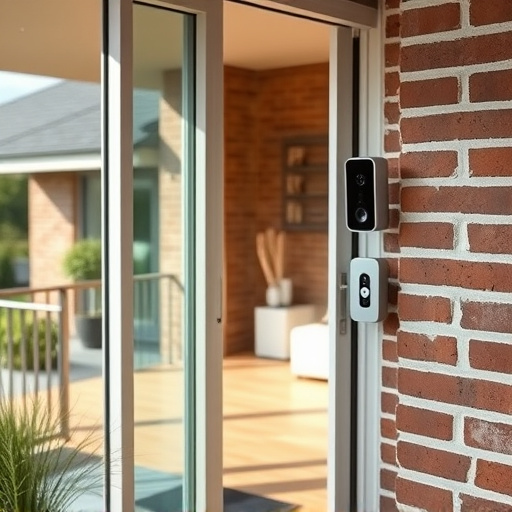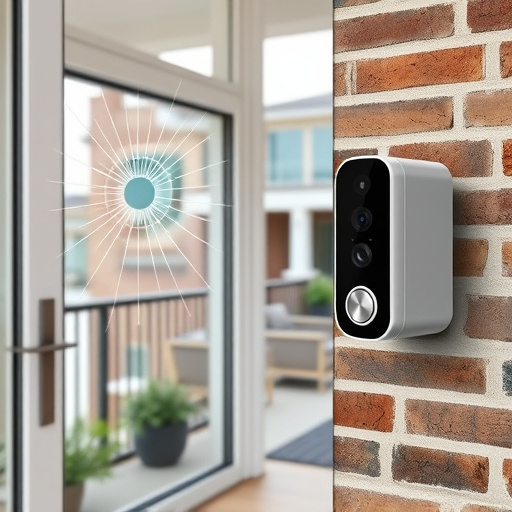Selecting the right security camera requires understanding your property's needs, including size, surveillance goals, and specific features like motion detection or night vision. The ideal home camera offers high-resolution video, reliable connectivity (Wi-Fi/Ethernet), advanced features, and integration with smart home systems. When choosing security cameras, consider budget, brand reviews, and compatibility to ensure an effective security system. Key components include high-res video, night vision, motion detection, two-way audio, and weather resistance for comprehensive protection.
Choosing the right security camera is crucial for a robust home security selection. This comprehensive guide will walk you through the process of selecting the ideal home camera to suit your needs. We’ll explore different types of security cameras, highlighting their unique features and benefits. Understanding your home security requirements is key, alongside considering installation options and budget constraints. By the end, you’ll be equipped with the knowledge to make an informed decision on the best security system for your home.
- Understanding Your Home Security Needs
- Types of Security Cameras: An Overview
- Key Features to Look for in a Security Camera
- Installation and Compatibility Considerations
- Budgeting for the Ideal Home Security Camera System
Understanding Your Home Security Needs

Understanding your home security needs is the first step in choosing the right security camera. Consider factors such as the size and layout of your property, areas that require constant surveillance, and specific concerns like motion detection or night vision. The ideal home camera should offer clear, high-resolution video, reliable connectivity (Wi-Fi or Ethernet), and advanced features like motion sensors, two-way audio, and cloud storage options to ensure an effective security system.
Additionally, think about your budget and the level of integration you desire with other smart home devices. With numerous security camera options available, selecting the best one involves evaluating brands, models, and user reviews to find a camera that aligns perfectly with your home’s unique requirements and preferences.
Types of Security Cameras: An Overview

When selecting the right security camera for your home, understanding the various types available is crucial for an effective security system. The market offers a wide array of options, each designed to cater to specific needs and preferences. Among them are wired cameras, known for their reliability and consistent performance, and wireless models that provide flexibility and ease of installation.
Additionally, you’ll find IP (Internet Protocol) cameras, which offer advanced features like remote access and high-definition video streaming. These are particularly suitable for those seeking a home security selection with modern capabilities. Furthermore, some cameras come with built-in motion sensors and night vision, making them ideal for ensuring the best security system coverage both day and night. Choosing the ideal home camera involves evaluating these features based on your specific requirements and budget.
Key Features to Look for in a Security Camera

When selecting the right security camera for your home, several key features should top your list. The ideal home camera should offer high-resolution video quality, typically 1080p or 4K, to ensure clear and detailed footage. Night vision capability, often achieved through infrared (IR) LEDs, is crucial for round-the-clock monitoring, making it an essential component in any home security selection.
Furthermore, consider cameras with motion detection technology, which can trigger alerts when activity is detected, helping to identify potential intruders or unusual behavior. Storage options are also vital; cloud storage provides remote access and backup, while local storage ensures footage availability even without internet connectivity. Additionally, look for features like two-way audio, allowing you to communicate through the camera, and weather resistance for outdoor deployments, contributing to an effective security system.
Installation and Compatibility Considerations

When selecting a security camera, consider your installation needs and compatibility with existing systems. The right security camera should seamlessly integrate into your home’s wiring or work wireless for easy setup, ensuring an effective security system. Look for cameras compatible with your router and compatible with popular home automation platforms like Alexa or Google Home for convenient control and monitoring.
Ensure the chosen camera matches your home’s size and layout, offering adequate coverage without overlapping fields of view. Consider factors such as night vision capabilities, motion detection sensitivity, and storage options to match your specific requirements. With these choosing security cameras considerations in mind, you’ll be well on your way to choosing an ideal home camera that provides peace of mind and robust protection for your property.
Budgeting for the Ideal Home Security Camera System

When selecting a home security camera system, budgeting is a crucial aspect that should not be overlooked. The cost of a security camera can vary greatly depending on features, quality, and brand. It’s important to determine your budget range before making any purchases. Remember, the most expensive option isn’t always the best fit; instead, focus on finding an effective security camera that aligns with your financial goals without compromising on essential features like resolution, night vision, and motion detection.
Consider the value each security camera provides and how it contributes to your overall home security strategy. Some systems offer basic protection at a lower cost, while others are more advanced and expensive but come with additional benefits such as cloud storage, remote access, and integration with smart home devices. Balancing your needs, preferences, and budget will help you choose the right security camera that offers the ideal level of protection for your home without exceeding your financial means.






